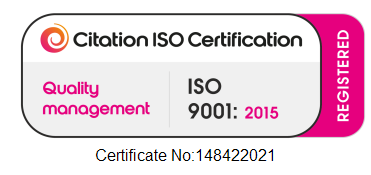Understanding eCOA and Its Role in Modern Trials
If you’re running a clinical trial and considering using eCOA (Electronic Clinical Outcome Assessment), you’re already on the right track. It’s reshaping how researchers collect and manage patient data, offering accuracy, speed, and real-time insights that traditional methods can’t match.
But with so many eCOA types available, which one fits your study best? This guide explores each type to help you make a confident and informed choice.
Learn how STK Life’s clinical trial devices are purpose-built to support eCOA and ePRO data collection across research environments.
What Is eCOA?
eCOA, short for Electronic Clinical Outcome Assessment, is a digital method for capturing patient data during clinical trials. Instead of handwritten forms, patients now use secure apps on smartphones or tablets that record and transmit responses directly to researchers.
This method eliminates delays, improves accuracy, and enhances compliance — a key reason why it’s becoming the gold standard for clinical studies.
Discover more about eCOA best practices for 2025 in our latest research insights.
The Growing Impact of eCOA in Research
The adoption of eCOA in clinical trials has grown rapidly. Its ability to provide reliable, real-time data helps research teams make faster, data-driven decisions. For many organizations, it’s the most significant shift since the move from paper-based to digital data systems.
Types of eCOA in Clinical Trials
Not all eCOA systems serve the same purpose. Each type offers unique advantages based on the trial’s objectives, patient population, and data requirements.
1. ePRO: Patient-Centered Feedback
ePRO (Electronic Patient-Reported Outcomes) empowers patients to share their daily experiences directly through digital platforms.
Why researchers value ePRO:
- Real-time feedback: Get instant updates from patients, allowing faster study adjustments.
- Direct insight: Collect genuine patient experiences without third-party interpretation.
- Improved accuracy: Digital inputs reduce handwriting errors and ensure clean data.
See real-world benefits in our article on eCOA examples in clinical trials.
2. eDiary: The Patient’s Digital Journal
eDiary gives patients a platform to record their experiences, symptoms, and daily routines in their own words.
Key advantages:
- Detailed reporting: Patients can log more in-depth observations.
- Patient perspective: Encourages emotional and experiential feedback, enriching the dataset.
This personal approach helps researchers understand treatment effects beyond numerical data.
3. eCRF: The Data Collection Powerhouse
The Electronic Case Report Form (eCRF) is the core system for collecting structured data across all participants.
Benefits include:
- Efficiency: Digital collection reduces admin time.
- Data consistency: Uniform formatting simplifies analysis.
- Error reduction: Automated checks ensure data quality.
Explore how STK Life’s solutions help CROs and research teams manage consistent data collection across multiple sites.
4. eConsent: Streamlining Informed Consent
eConsent digitizes the consent process, allowing patients to review and sign documents online.
Advantages of eConsent:
- Accessibility: Participants can review forms anywhere, anytime.
- Improved understanding: Visual aids and clear summaries enhance comprehension.
- Reduced paperwork: Saves time and ensures all records are securely stored.
5. eVisit: Virtual Consultations Simplified
eVisit enables virtual meetings between patients and clinical staff, from check-ins to consultations.
Key benefits:
- Greater accessibility: Allows participation from remote locations.
- Lower costs: Reduces travel time and site expenses.
- Better communication: Supports consistent engagement between patients and research teams.
This virtual model mirrors modern healthcare innovations, creating a more flexible and patient-focused trial experience.
Similar to integrated wellness programs that keep participants engaged remotely, eVisit helps maintain study continuity and patient commitment.
Choosing the Right eCOA Type for Your Study
Selecting the right eCOA type depends on your study goals, patient demographics, and technical capabilities.
Key considerations:
- Trial objectives: Define whether you need subjective (ePRO) or structured (eCRF) data.
- Patient population: Match tools to participants’ digital literacy.
- Budget: Balance feature-rich platforms with operational efficiency.
- Technology access: Ensure participants can easily use the provided devices.
eCOA and the Future of Clinical Trials
The clinical trial landscape is evolving, and eCOA is leading that transformation. From mobile eCOA systems to wearable data capture, technology is making research more accurate, efficient, and patient-centric.
Learn how STK Life’s customized clinical trial devices enhance data integrity and streamline multi-site research programs.
Learn More About STK Life’s Role in eCOA Advancement
STK Life designs and delivers secure, efficient devices tailored for clinical research and government health initiatives.
- Specializes in eCOA, ePRO, and hybrid clinical trials
- Provides customized tablets, smartphones, and wearables for accurate data collection
- Enhances data security, compliance, and consistency
- Supports decentralized clinical trials (DCTs) worldwide
Ready to optimize your trial setup? Visit the Company page or contact the STK Life team to learn how our technology can elevate your next study.
Suggested Reads
- Why STK Life Leads Clinical Trial Technology and eCOA Solutions in the UK
- Patient Data Collection Best Practices for 2025
- eCOA Real-World Examples in Clinical Trials
- eCOA vs Paper-Based Clinical Trials: Which Is Better in 2025
- Battery Life in Clinical Trial Devices: Why It’s More Critical Than You Think


